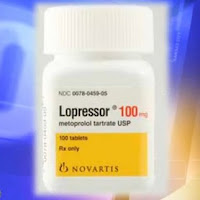People taking the blood pressure drugs called beta blockers may be less likely to have changes in the brain that can be signs of Alzheimer’s disease and other types of dementia.
This is according to a study released that will be presented at the American Academy of Neurology’s Annual Meeting in San Diego.
The study involved 774 elderly Japanese-American men who took part in the Honolulu-Asia Aging Study. Autopsies were performed on the men after their death. Of the 774 men, 610 had high blood pressure or were being treated with medication for high blood pressure. Among those who had been treated (about 350), 15 percent received only a beta blocker medication, 18 percent received a beta blocker plus one or more other medications, and the rest of the participants received other blood pressure drugs.
The study found that all types of blood pressure treatments were clearly better than no treatment. However, men who had received beta blockers as their only blood pressure medication had fewer abnormalities in their brains compared to those who had not been treated for their hypertension, or who had received other blood pressure medications. The brains of participants who had received beta blockers plus other medications showed an intermediate reduction in numbers of brain abnormalities.
These included two distinct types of brain lesion: those indicating Alzheimer’s disease, and lesions called microinfarcts, usually attributed to tiny, multiple, unrecognized strokes. Study participants who had taken beta blockers alone or in combination with another blood pressure medication had significantly less shrinkage in their brains.
“With the number of people with Alzheimer’s disease expected to grow significantly as our population ages, it is increasingly important to identify factors that could delay or prevent the disease,” said study author Lon White, MD, of the Pacific Health Research and Education Institute in Honolulu. “These results are exciting, especially since beta blockers are a common treatment for high blood pressure.”
Earlier research has shown that high blood pressure in midlife is a strong risk factor for dementia.











